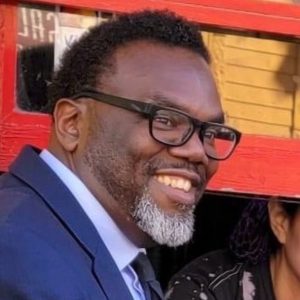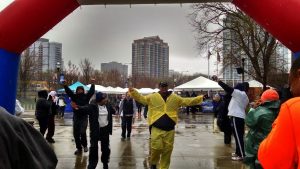CPS and CTU are battling over contracts, parents are battling turnarounds, phase-outs and closures, and legislators are pushing for a moratorium to halt all school actions, but in just a few months, more than 400,000 children in the Chicagoland area will be boarding school buses to start the school year. 7,500 of those children will be on a bus to a school undergoing a phase-out, a three-year shuttering process.

The next couple of months are expected to be filled with heated discussions and urgent calls for resolution before the 2012-2013 school year begins.
CEO Jean-Claude Brizard said the city is full of children who are in an “education emergency room.”
Months after CPS approved 17 schools for turnaround, closure or phase-out, parents and activists are starting to increase protest efforts as a sense of urgency continues to grow.
“For too long, our students have been cheated out of the high quality education they deserve and we can no longer accept a status quo that has failed them year after year,” said Becky Carroll, Chief Communications Officer of CPS. “With only 57 percent of students graduating from high school and 7.9 percent of 11th graders testing college ready, the needs of our children come before all else, and we must take action now to provide them with access to higher quality school options.”
Tuesday, April 10, when Mayor Rahm Emanuel said he was scaling back his proposal of 71/2-hour school day to 7-hours, activists gained hope they could do more.
CPS has designated The Academy for Urban School Leadership (AUSL), which currently implements the turnaround strategy in 12 CPS schools, to implement the turnaround strategy at six of the schools serving nearly 3,200 students, according to their website.
Marielle Sainvilus, press secretary for CPS, said they chose so many of the failing schools for turnarounds because “we want to build a stronger educational community.”
“Turnaround models have delivered consistent and impressive results for students almost immediately,” said a CPS press release. “This past year, AUSL elementary schools more than doubled the district’s average in growth.”
A study from the University of Chicago’s Consortium on Chicago School Research indicates Chicago’s turnaround elementary schools produced better academic gains than other “worst of the worst’’ schools that did not undergo similar reforms. But the same cannot be said about turnaround high schools, which, after four years of study, did not perform differently than similar struggling high schools on at least two important indicators.
The analysis ranked 210 city neighborhood schools with at least 95 percent low-income students, based on the percent of students passing their 2011 state reading tests. It found that AUSL placed only three schools among the top 100 — Howe (53rd), Morton (84th) and Johnson (88th). AUSL’s lowest scorer was Bethune, at 199th. Two CPS-run turnaround schools — Langford and Fulton — came in 150 and 206th, respectively.
Often, the study found, neighborhood schools outperformed equally-poor AUSL turnaround schools located only a few miles away. For example, in the South Shore neighborhood, Powell came in No. 14, while AUSL’s Bradwell was No. 194 according to the Chicago Sun-times.
CPS disputed the facts and said AUSL schools have more than doubled the district’s average growth rate and “provide an opportunity for academic achievement that would otherwise be unimaginable for students.”
Carolina Gaete, parent of a child who attends Whittier Elementary School, said, “When you go to communities where there’s no [neighborhood] schools, those are the communities with a high crime rate. We cannot separate the really-trying people from resources, then expect the community to flourish. When you’re taking away the schools, children don’t have access to education.”
CPS teachers are facing a different set of challenges. As the Chicago Tribune reported, CPS and the Chicago Teachers Union remain far apart on teacher salaries. The union went into talks last with a request for a 30 percent raise over two years. The district is offering a 2 percent raise next year and an eventual move to a merit pay system that would reward teachers for working in low-income schools and taking hard-to-fill positions.
The Chicago Teachers Union said internal polling shows there is support for a strike if contract talks with Chicago Public Schools break down. CPS spokeswoman Becky Carroll said it’s still too early in negotiations to talk about a strike.
“Any talk of holding a strike or mock strike votes at this early stage of contract negotiations is a disservice to our children, parents and families and only diverts our energies away from focusing on our students and boosting their achievement in the classroom,” Carroll said.











Be First to Comment